Interview: PRIMAL Director Nick Powell On His Old-School Action-Adventure Thriller
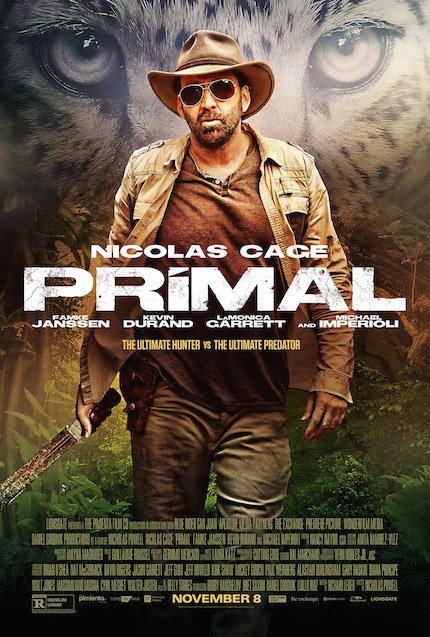
In Nick Powell’s Primal, the always entertaining Nicolas Cage stars as Frank Walsh, the movie's ultimate antihero who served in the military and worked at several zoos before becoming a professional hunter.
After spending some time in a Brazilian rainforest, Frank thinks he has finally “hit the motherload” because he managed to capture an extremely rare and valuable female white jaguar that should turn him into a rich man.
However, once Frank is ready to travel by ship with the white jaguar and several other animals –including a group of monkeys that will get violent if they feel threatened and a couple of venomous snakes– his plan gets completely altered.
Some representatives of the U.S. government, including a Navy doctor (Famke Janssen), an attorney who might have his own agenda (Michael Imperioli) and a Marshal (LaMonica Garrett), will board the same ship because they are transporting an extremely dangerous assassin (Kevin Durand) who, due to heath issues, can’t travel by plane. It will be a matter of time, certainly, for the antagonist to escape, free Frank’s wild animals and put the entire crew’s lives in danger in this single-location action-adventure thriller, which is considered by its director Nick Powell as a “throwback to the thrillers of the eighties and nineties." Check out below what else Powell told ScreenAnarchy about Primal.
ScreenAnarchy: What got you interested when you read the PRIMAL script?
Nick Powell: I got sent the script by a producer, asking if I would be interested in doing it. The script came through and it reminded me of the movies I used to go when I was younger, in the eighties. It was a bit of a throwback, I thought it was very good popcorn thriller with a little bit fun in there, a lot of edge-of-the-seat excitement. It kind of just reminded me of the old days and the stuff when Nic Cage started out, the kind of movies that I felt that he did really well when he began his career. Obviously this role for him was great, a role that reminded of the stuff he used to be in when he was quite a bit younger.
This is not the first time you have directed Nicolas Cage. How was the process to cast him? Was he your choice?
When I was sent the script, the producer sent it to me and said that he thought he could get it made; he kept the script for a long time, the script was quite an old script. He sent it to me saying that if I liked it, if we could hook one of these actors... and he gave a list of actors, after I read the script he gave me a list of actors. Funnily enough, on the list of actors he gave me was Nic Cage’s name.
As I was reading it [the script] I was actually thinking that the character Frank was perfect for Nic and it turns out that Nic’s on the list of the people that we felt we could greenlight the movie with. So I approached Nic because we’ve done a movie together [Outcast], our first movie together a few years back, and it was not a great experience for either of us in terms of what happened to the movie and how it all ended up transpiring. It wasn’t a good experience but we said, “let’s do something else together where we can have a good experience.”
So we’ve been talking about doing something and then, as I said, this came across my desk and I thought in Nic straight away, the producer said “I think we can get it made with Nic”, so I approached him and he was on board. He read the script within a few days and basically came back to me and said, “look, I wanna work with you, I really like the project, let’s go for it.”
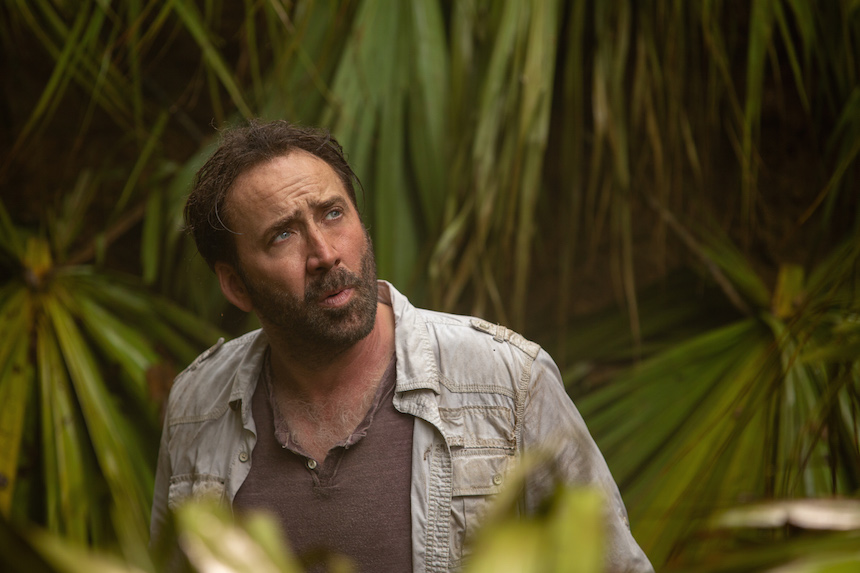
You’re saying that OUTCAST wasn’t a really good experience and now PRIMAL was the opposite. What do you think was the key to have a much better experience now?
The problem with Outcast was that everything was getting changed all the time. There was a lot of changes at the top with producers and basically they wanted to do things that neither of us wanted to do. And so it ended up basically being a producers’ movie. I was not in control of very much of that, the end of it all. I did the best I could under the circumstances but I always felt that I was making a movie that I didn’t have a lot of control over. We enjoyed working together, we enjoyed going through the process so it was a case of “well, look, the overall experience between you and I was good but the actual movie itself had a lot of problems, so let’s try and do something which doesn’t have that kind of problems.”
[In Primal] We had a producer in Puerto Rico who basically made everything happen for us, you know? He was basically the catalyst, he made everything happen as it should happen. The guy called Luillo Ruiz, basically Luillo made everything work and was smooth for everyone. I mean, it was a tight schedule, a tight budget, there’s no denying that, it was tricky but everything was there when it was supposed to be there and it all worked well as opposed to a lot of other things, as I said, on the first project that we worked together on that didn’t happen.
Though PRIMAL had a tight schedule and budget, as you said, it also depends a lot on these special effects for the animals, particularly for those sequences with the jaguar, the monkeys and the snakes. How was the process with the technology to develop the animals?
We had two companies we were working with, the main one that did the jaguar and the monkeys was Tau. Walt Jones was our sort of guide there; I had worked with Walt before, we worked together on a project, he had done some work on Life of Pi so as soon as I got the script I knew there would be a lot of CG animals so I approached Walt straight away and managed to get him on board pretty quickly and he came on to do those animals.
Then we had the company in Puerto Rico, Francisco Cueto put everything together and did the snakes and did all the other shots in the movie. Between the two of them, they did amazing work on the tight budget that we had. Obviously if we had more money everything would have looked a little bit better, but I think they did great under the circumstances.
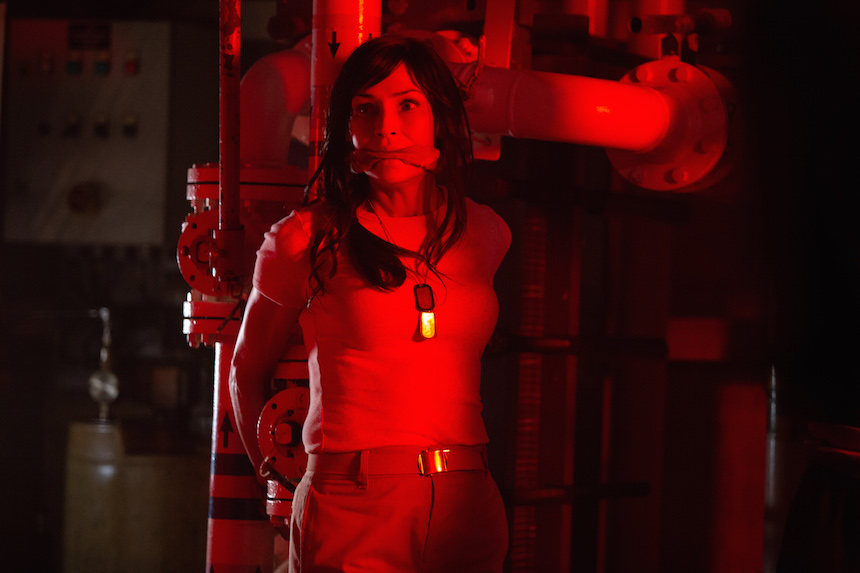
I know you have a background as a stunt coordinator. PRIMAL also has some fights, hand-to-hand, so I bet you were involved in that decision…
Yeah, because of my background with Gladiator, Braveheart, The Last Samurai, The Bourne Identity, I’ve always been in charge of the fights and the action and everything else. It’s difficult sometimes to let go, I gave our local stunt coordinator in Puerto Rico [Raul Alcocer] the brief of what I wanted, so he put together an outline and then I went in, to some of the rehearsals because they [Cage and Durand] had to be believable.
We didn’t really use doubles with the except for one or two small things, when Nic got throw on to the concrete. Nic did everything else himself and so did Kevin, except for one swing that was a little too dangerous. But the whole fights themselves were done by Nic and Kevin, and I prefer that because it feels a lot more real, you’re not hiding doubles and things like that, you’re not shooting around things, you’re actually able to shoot the both of them fighting together for real. So I had a little bit of a hand in it, but the actors, both of them, committed fully and they really went for it and put a great deal of energy and time into the rehearsals and the filming. Our local stunt coordinator in Puerto Rico, he did a great job.
Kevin Durand is a pretty good antagonist and you also have Michael Imperioli. How was the experiencing of working with such a terrific cast?
I was very happy that we could bring Kevin on. I’ve known Kevin a long time and when this movie came across my desk at the beginning and I said, “look, Nic would be great for Frank”, I mentioned Kevin initially for the antagonist. The producers wanted to try and find a bigger name to begin with and so we spent a few months looking at bigger names, whether they were available and how much they cost and everything else. And in the end, they came back to me and sort of said, “who was the guy at the beginning that you mentioned?” and I said “Kevin” and we went back to Kevin and he did the most amazing job. I’m so happy we went around in a circle because I’ve already mentioned him at the beginning and we managed to get him in.
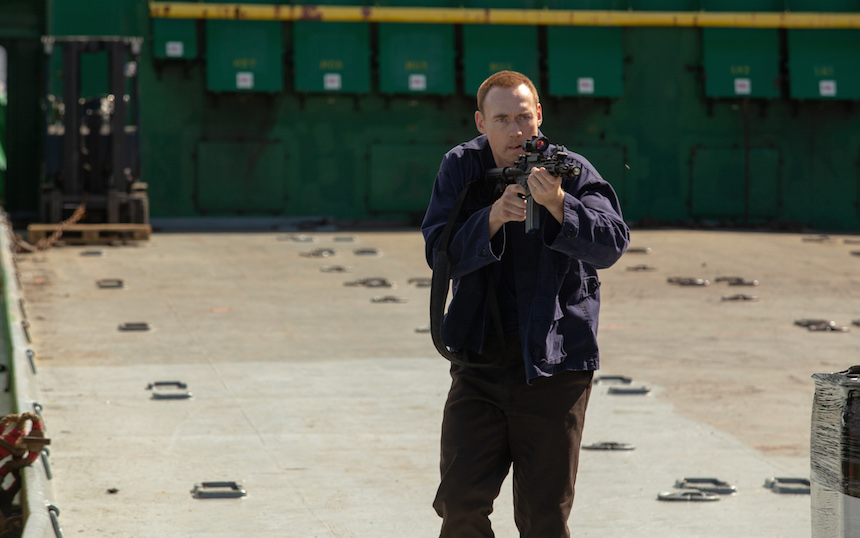
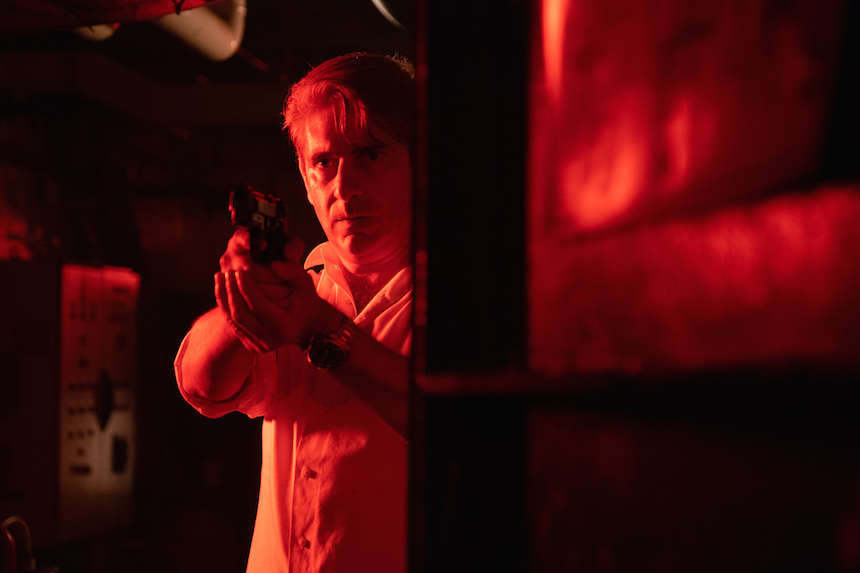
Famke [Janssen], Michael [Imperioli] and LaMonica [Garrett], the whole cast I thought was really strong as an ensemble cast. I was very happy because a lot of the independent movies can’t afford to put a cast together because most of the money goes on the one person that is the main and on making the movie, then there’s nothing left for the rest of the cast. Whereas here at least we could assembled a decent little cast that sort of feels like real good actors. That’s really the heart of the movie, I mean after having a good script you got to have a good cast. It doesn’t matter how good you are as a director, if you don’t a good script and a good cast, it’s going to be mission impossible to make a good movie.
Going back to the script, it’s a very peculiar story because you have on one hand this hunter with rare animals on a ship and then on the other, the assassin. How was the process to balance all those elements? And also, was it difficult to set the whole thriller in a single location?
One of the big things is that I knew straight away, reading the script, that the boat itself, the interior of the boat mainly because that’s where most of movie takes place, has to be really interesting to look at. We managed to find a boat in Puerto Rico that they were about to demolish and destroy, an old boat but it had so much texture and character that once we’ve seen it, it was obvious that we had to shoot there. With this particular movie, I just said, “it all takes place in the one location so that location has to be really interesting.” I think we found that with the ship. It has to be confined, it has to be claustrophobic, it has to make the audience sort of feel like they’re there and anything could be coming around the corner, so we needed the lights, the texture and the character of the ship to convey a certain character; the ship itself becomes a character in the movie.
I think it worked very well because, as I said, it felt to me like a little bit of a throwback, it’s an old-school thriller, high-concept old-school thriller from the eighties or nineties. That’s what we were trying to get, we wanted to have a popcorn thriller that people will enjoy, that was fun, that they could be on the edge of their seats with a little bit of laughter.
It also deals with the theme of redemption through Cage's character. So what do you think are the most significant themes of the movie?
As you said, there’s some redemption on in the fact that at the end of it, he’s gone from wanting to basically buy a house and prove his father wrong that he has made something of himself to actually not being just about the money and seeing a bigger picture than just himself. I think he’s got a decent arc in the movie, there’s somewhere for the character to grow and likewise, at the beginning Famke’s character thinks that he’s basically a total asshole as a person and going through the whole process with this guy and starting to see a very slow progress and change and that there might actually be something in him at the end of the movie. It’s a nice arc for Nic as a character, because it’s very much an antihero character which I think Nic is great at playing.
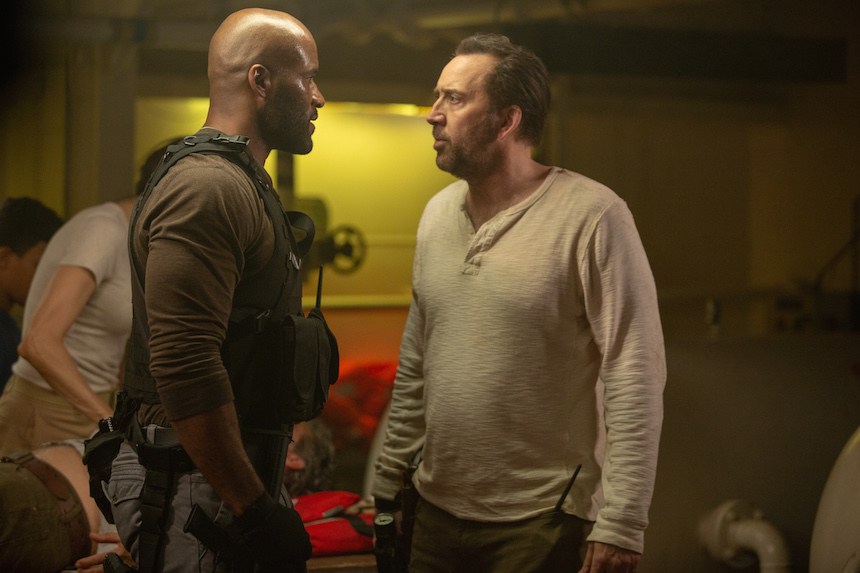
Cage, thanks to such films as MANDY and COLOR OUT OF SPACE, is currently reaching the genre, horror and fantasy cinema fan base better than ever. What do you think of this? And what did you want him to bring to PRIMAL?
I think Nic’s career has been so varied. He’s done a lot of projects over the last few years, some of which have been great and some of which have not been great. It’s one of those things when you do so many movies, obviously you’re going to end up with some of them being successful and some of them being not as successful as others. Nic has such a great body of work behind him, everybody can name a Nic Cage film that’s one of their favorite movies or one of their favorite performances.
The thing with Nic is that, it’s not just all about his idea, he’s very collaborative and cooperative from a director’s point of view, he’s very professional. You can go in there and chat about how the story should be developing, how the character is going to develop over the course of the movie and everything else. And he comes with his own ideas, he’s got his own thoughts on how things should be progressing at that particular stage of the movie and then, you can sort of fight against it because you don’t think it should be there at that point and Nic would argue his point, you argue yours and, you know?, he’ll play along with you because he’s a professional. I get on very well with Nic, we don’t have any problems, he’s very collaborative and cooperative.
Primal is available in select theaters and on demand November 8th.







